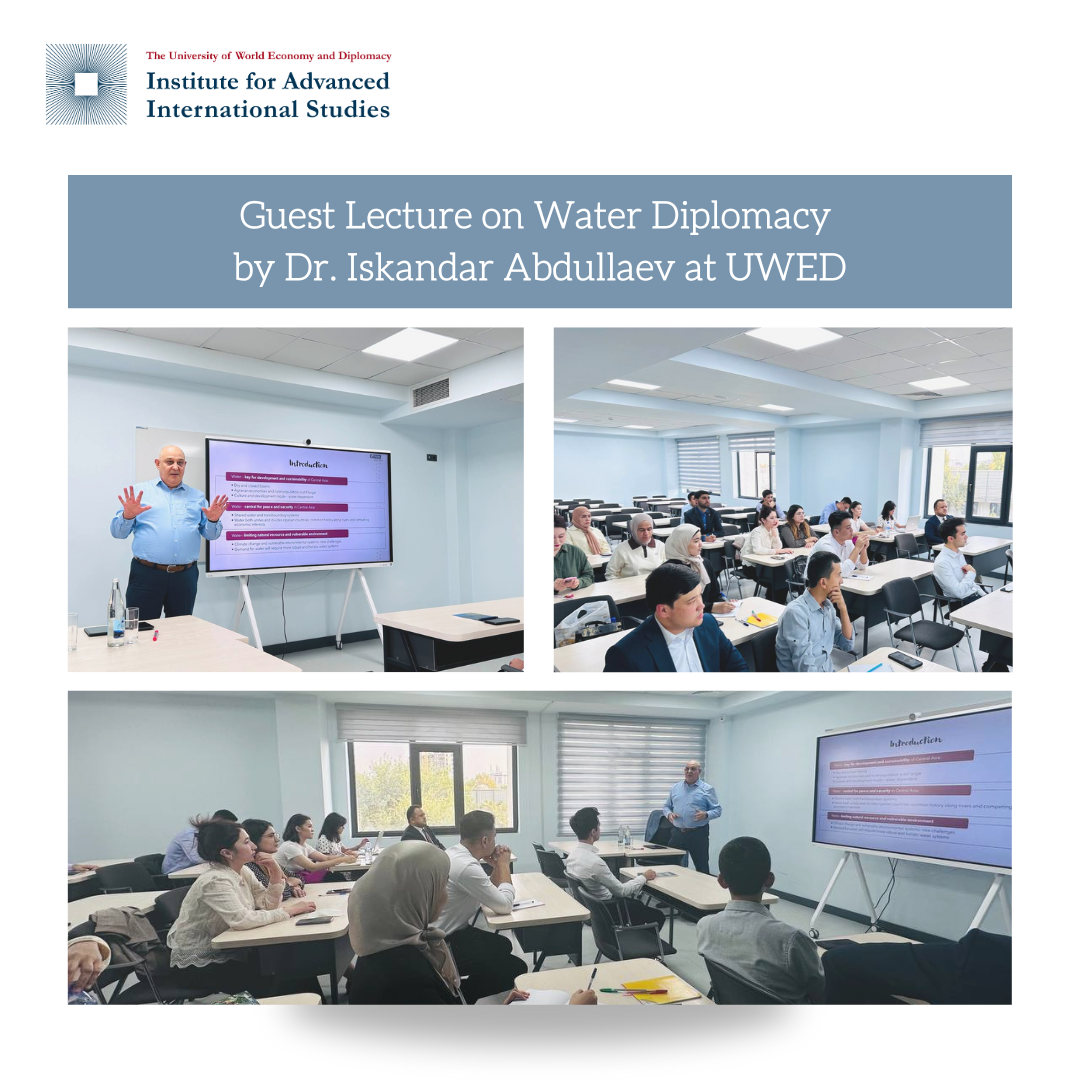
On 26 September 2024, the students of the International Relations Master’s Programme at the University of World Economy and Diplomacy (UWED) had the privilege of attending an insightful guest lecture delivered by Dr. Iskandar Abdullaev, a renowned expert in water management and sustainable development in Central Asia. The lecture, entitled “Water Sector Development in Central Asia: Challenges and Prospects”, addressed some of the most pressing issues facing the region's water resources and their crucial role in its political and economic future.
Dr. Abdullaev began his presentation by introducing the students to the historical context of water resource development in Central Asia, particularly in the post-Soviet period. He emphasised that water management is not only an environmental concern but also a deeply political issue, affecting regional stability and cooperation among the Central Asian republics. Central Asia, being an agrarian region with a large rural population, heavily depends on water for its socio-economic sustainability, making it a key factor for peace and security.
The lecture delved into the complex dynamics of transboundary water systems, where shared resources have historically both united and divided the riparian states of the region. It was discussed how the competing economic interests of the Central Asian countries often lead to tensions, but also how effective regional cooperation in water management could prevent conflicts and promote mutual benefits.
One of the critical points of discussion was the impact of climate change on the water resources of Central Asia. Dr. Abdullaev explained how rising temperatures and shrinking glaciers have exacerbated the already fragile water situation, resulting in more frequent droughts, declining water quality, and growing demand for water. He pointed out that the region has witnessed significant losses in agricultural productivity and access to drinking water due to these changes, making it imperative to develop more robust and integrated water management systems.
During the interactive sessions, students engaged with the lecturer on a variety of topics, including the importance of international cooperation for addressing water scarcity, the role of technology and innovation in improving water management, and the challenges posed by the increasing politicisation of water issues. They emphasised that the future of Central Asia is closely tied to how the region manages its water resources, and that investing in water infrastructure is critical for the long-term economic growth and sustainability of the countries involved.
In conclusion, Dr. Abdullaev left the students with key takeaways, stressing that the success of water sector reforms will depend on human, technological, and financial capacities, as well as political will. His lecture provided a deep understanding of the interconnected nature of water, politics, and development in Central Asia, offering students a comprehensive view of the challenges and opportunities that lie ahead for the region.